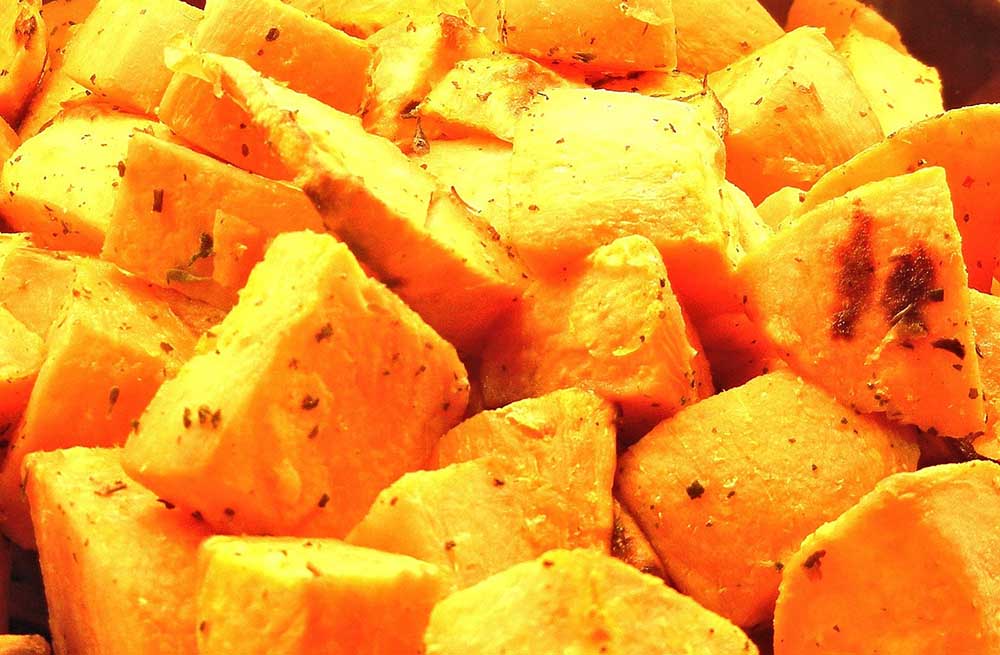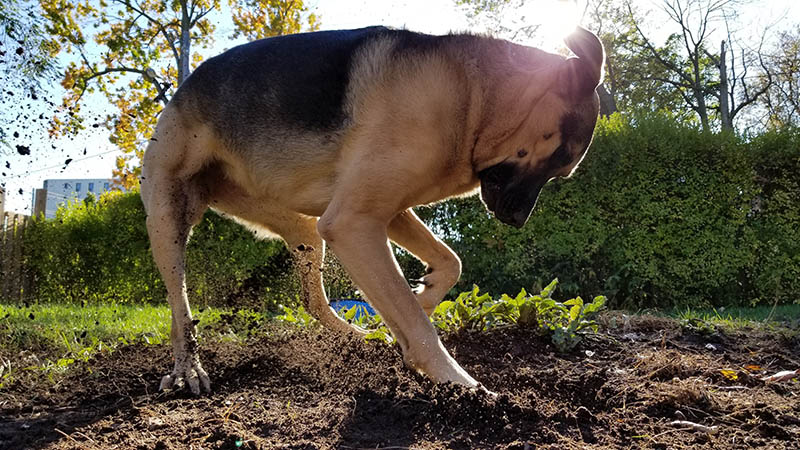Can Dogs Eat Sweet Potatoes? Vet-Reviewed Facts & FAQ

Updated on

The short answer is yes—you can serve your dog some sweet potatoes, as whole fresh food diets are normally considered healthier options. However, you have to be cautious and observant while feeding your dogs these root vegetables. Some dogs also dislike the taste, while others have sensitive stomachs.
If you’d like to add some extra nutrition to their dry kibble, boil the sweet potatoes, or steam them. Read on below to find out more.
What Are Sweet Potatoes?
Scientifically christened the Ipomoea batatas, the sweet potato is a member of the bindweed family, otherwise known as Convolvulaceae. This family is sometimes known as the morning glory community because their flowers often unfurl in the morning.
The plant is endemic to tropical America, and its tuberous roots typically have yellow or orange flesh. Though rare, a few of their peers have purple-, red-, and white-colored flesh.
Why Are Sweet Potatoes Beneficial for Dogs?

Sweet Potatoes Have High Levels of Beta-Carotene
Haven’t you ever wondered where some of our plants get their vibrant colors from? For example, why is sweet potato, yellow, orange, purple, or red?
Well, beta-carotene is the answer to that question. This pigment naturally occurs in some of our fruits and vegetables, thus giving them different hues.
Beta-carotene is a provitamin under the carotenoid family. Once ingested, it’s converted into retinol, which is commonly referred to as vitamin A. All animals (including humans) need vitamin A to maintain healthy skin, fortify their immune system, and fight infections looking to compromise their good vision. However, some species are unable to efficiently convert beta-carotene into vitamin A; a cat is one of those species.
What Are the Signs of Vitamin A Deficiency?
The most obvious signs are poor skin quality and nighttime blindness. There’s also a possibility that your dog will have an abnormal reproductive system, and their teeth and bones won’t develop properly. It’s vital to always make sure that your dog gets the required amount of vitamin A daily.
Antioxidant Activity of Beta-Carotenes
As an antioxidant, beta-carotene has always been tasked with protecting our pooches against free radicals. Free radicals are agents of destruction. Repairing such damages promptly is crucial because they can easily morph into innumerable chronic illnesses. Cancer, for example.
Sweet Potatoes Are a Rich Source of Fiber

Sweet potatoes are one of the richest sources of fiber that we have. And while it’s usually classified as a complex carb, it’s different from your conventional starch. In fiber, you get a dietary component that can resist digestion once it gets to your dog’s small intestines. According to health experts, fermentation of fiber usually starts in the large intestines, giving it a longer digestion period in comparison to simple carbs.
The primary task of fiber in the body is to absorb excess water and increase bulk. That’s why it’s the go-to nutrient for pets struggling to maintain bowel regularity. Furthermore, it’s the food source for healthy probiotic bacteria and often responsible for facilitating the creation of an optimal intestinal pH, inhibiting the growth of harmful bacteria in your pet’s gut.
If you own a diabetic dog and have been wondering which foods can help regulate the glucose levels in their system, sweet potatoes can help. Their slow fermentation will minimize fluctuations, while the low calories can aid in weight loss. However, before offering sweet potatoes to your dog, consult and inform your veterinarian, especially if the dog is on a diabetes management treatment.
Other Health Promoting Nutrients & Minerals
Sweet potatoes are rich in minerals like iron, calcium, and potassium, in addition to vitamins B6 and C. B6 cannot be synthesized by the dog’s body and must be consumed with the diet. It plays an important role in the metabolism of proteins, fat, and carbohydrates, and it promotes a healthy nervous system and the generation of more red blood cells. Vitamin C is synthesized by a dog’s body but is still important for them to consume in their diet, as it reduces inflammation, provides support to dogs grappling with disease processes, and helps fight free radicals.
Besides bone and teeth formation, calcium helps in muscle building and functioning, while iron facilitates the transportation of oxygen throughout the body.
Are Sweet Potatoes the Same as Yams?

They’re both root vegetables, but not the same. Some people use them interchangeably, probably because they are both tubular and grow underground. But if you check the nutritional information of both plants, you’ll realize that sweet potatoes are not as starchy as yams. On top of that, yams tend to be drier.
In Conclusion, Are Sweet Potatoes Good for Dogs?
Yes. Sweet potatoes are beneficial for dogs in more than one way. They are mainly complex carbs that are low in calories and high in fiber, therefore making them a healthy dietary ingredient option for dogs.
Can too many sweet potatoes harm your dog? Unfortunately, yes. The high carbohydrate content in sweet potatoes can quickly lead to obesity, while too much fiber in the system can result in low mineral absorption and diarrhea. So, if you’re thinking of giving sweet potatoes to your pup to complement their diet, serve them in moderation.
See also:
- Can Dogs Eat Mashed Potatoes? Nutrition Facts & Safety Guide
- Can Dogs Have Olive Oil? Nutrition Facts & Safety Guide
Featured Image Credit: Chiristsumo, Shutterstock














